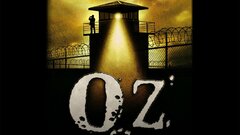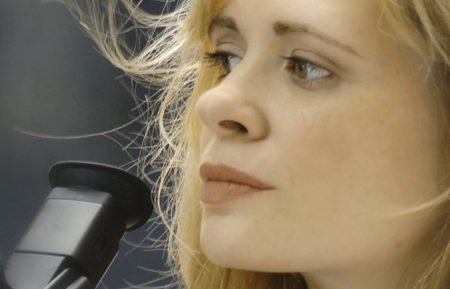Adrienne Shelly was an actress skeptical of her own ambitions and motivations prior to becoming a burgeoning filmmaker whose life was cut short by murder. Her talents both as an actress and as a director were admired by critics and film lovers, but remained largely unknown to the masses even after her untimely death. Hal Hartley, that unique directing talent whose quirky, philosophical films developed a strong cult following, made Shelly his personal muse in such notable indie hits as "The Unbelievable Truth" (1989) and "Trust" (1990).
She eschewed the glitter of Hollywood for the grit of independent film, developing strong feelings about the objectification of women onscreen and believing that women belonged behind the camera as well as in front. With her last directing effort, a bittersweet comedy called "Waitress," which premiered at the 2007 Sundance Film Festival amidst sobs and cheers, Shelly left behind a message of hope and redemption, despite her own hopes being callously and senselessly ended.
Shelly was born on July 16, 1966 in Queens, NY and began doing summer stock on Long Island and in upstate New York when she was just 9-years old. Though sought after for child acting by agents, her father famously denied them, saying that he would "not have [his] daughter jumping out a window when she's 30." She continued acting in school productions at Jericho High School, before attending Boston University to study filmmaking, only to drop out her junior year to learn matters on her own.
After relocating to Manhattan, Shelly co-founded Missing Children, an off-off-Broadway theatre company that staged productions in the West Village. Meanwhile, Hal Hartley managed to get a hold of Shelly's audition tape and headshot when casting for his first feature, "The Unbelievable Truth." Initially looking for a model-actress, Hartley was stunned by Shelly's ethereal beauty and undeniable talent, and cast her as Audry Hugo, a somber 17-year-old who spends her days worrying about the apocalypse and gets involved with a mysterious stranger (Robert Burke) rumored to be a mass murderer. The film emerged from the 1990 Sundance Film Festival a hit.
Hartley used Shelly in his next feature, "Trust," where she played a pregnant high school dropout involved in an unlikely romance with an anarchist electronics repairman (Martin Donovan). By this time, Shelly was considered to be part of the Hartley's esteemed acting stable, an uncomfortable distinction for an actress who tended to shy away from lavish compliments. She continued to find steady work as an actress, but rarely reached the artistic heights in acting she achieved with Hartley - though her performance in the little-known comedy "Hold Me, Thrill Me, Kill Me" (1992) was widely considered to be one of her best.
Such forgettable features as "Hexed" (1993), "Teresa's Tattoo" (1994) and "Grind" (1995) began filling out her resume and driving her to want something more from her career. In 1994, she made her directorial debut with the short "Urban Legend" (1994), described by Shelly as a New York City fairy tale. This was followed with her first feature "Sudden Manhattan" (1996), which also starred the filmmaker as a struggling city resident whose shambled life goes from bad to worse after witnessing a murder.
While still acting in low-budget features and the occasional role on series television, including the period comedy "Wrestling with Alligators" (1998) and an episode of "Oz" (HBO, 1997-2003), Shelly was clearly focused on working behind the camera. Her second feature, "I'll Take You There" (1999), a dark comedy about an obsessive woman (Ally Sheedy) who forces her blind date (Reg Rogers) at gunpoint on a wild nighttime rampage through New York City, earned Shelly honors at the U.S. Comedy Arts Festival and praise from critics, who noted her maturation as a filmmaker.
She returned to acting for a spell, appearing in "Revolution #9" (2001), a thriller about a schizophrenic man (Michael Risley) who believes everyone around him is part of a vast conspiracy; "Dead Dog" (2001), a dark comedy about how the death of a beloved pet destroys a once-happy New York couple (Jeremy Sisto and Paige Turco); and "Factotum" (2005), an adaptation of a Charles Bukowski novel about a sometimes writer (Matt Dillon) whose penchant for booze and women leads to self-destruction rather than inspiration.
After a six year absence from being behind the camera, Shelly wrote and directed her third - and ultimately final - film, "Waitress," a hopeful dark comedy about a pregnant pie maker (Keri Russell) who struggles with a jealous lout of a husband (Jeremy Sisto), while searching for the perfect recipe for love. Shot for just a few million dollars, "Waitress" marked a big artistic leap forward for Shelly, who managed to tell a simple, but emotionally engaging story with style, honesty and wit.
Her dream was to get the film into the Sundance Film Festival, which did happen, but Shelly never knew because her life was ended before notifications were sent. On Nov. 1, 2006, while working in her Tribeca apartment, Shelly got into an argument with Diego Pillco, a 19-year-old construction worker from Ecuador, over excessive noise. Diego lashed out, punching Shelly in the face and pushing her into a table, causing her to hit her head. Thinking he had killed her and fearing deportation, Diego tied a sheet around Shelly's neck, dragged her across the apartment and hung her in the shower, trying to stage her death as a suicide.
Police did originally conclude Shelly's death was suicide, but later found a suspicious sneaker print that matched Diego's own. Diego eventually confessed. Meanwhile, police discovered that Shelly survived the blow to the head and was killed by strangulation. She left behind her husband, Andrew Ostroy, and their 3-year-old daughter, Sophie. She was just 40 years old.

































